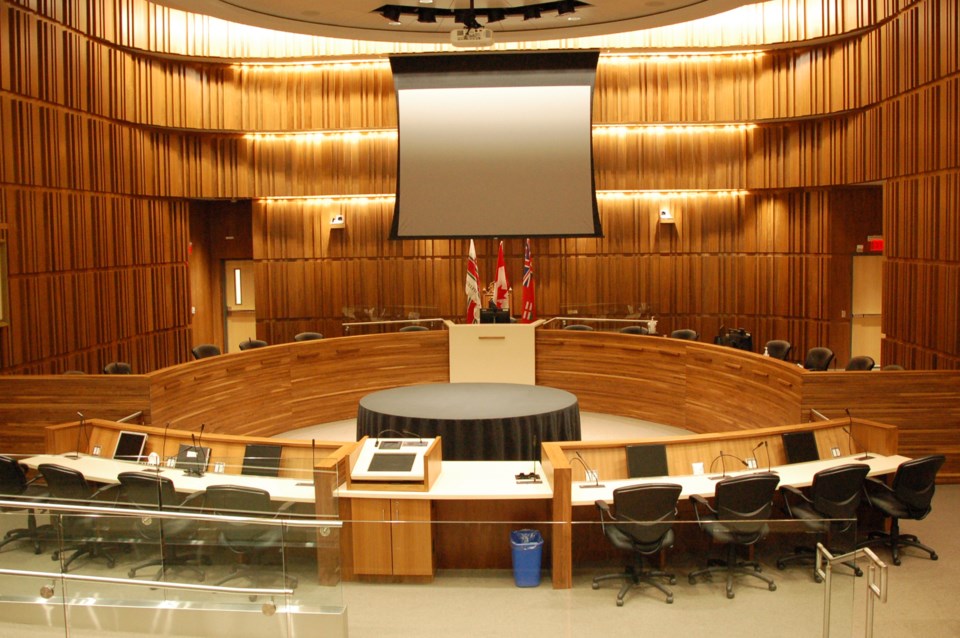To no one’s surprise, consultants hired by the City of Guelph to perform the ward boundary and council composition review liked their first recommendation from eight months ago.
So here we are. In less than 11 months, people will start filing their paperwork to run in the 2022 Municipal Election, and because the new ward map is subject to appeal at the LPAT, it could still be several more months before the next crop of potential councillors know for sure what they’re running to represent.
But the map will largely depend on what council decides about its future composition: Will they favour the continuation of two part-time councillors from six wards, or will they embrace boldness and change and step up to one full-time councillor from eight wards?
As always, my money’s on Guelph’s natural inclination to embrace the status quo with reckless enthusiasm, and that’s a shame.
I won’t revisit previous arguments like the fact that we’re still working with a system established exactly three decades ago, or that this isn’t the first time that council composition and operations have been changed. Instead, I want to focus on the core argument against the proposed eight-councillor structure.
You see, some people say that the Watson & Associates recommendation is going to provide Guelph with less democracy. Why? Because eight is smaller than 12? The numbers we should be all focused on is the population of the proposed wards.
Consider Ward 6 and its current compliment of 30,000 residents. The eight-ward plan will see the current Ward 6 split between two new wards, each with around 20,000 people, but in 10 years, both those wards will be home to just less than 30,000 people each. In other words, their combined size will be double that of the current southern most ward.
The two six-ward options present some particular struggles for equal representation for those living in the south end. One map sees Ward 5 automatically expand by 10,000 people so that more growth can be accommodated in Ward 6, and the other offers a slight change in the borders that will keep the current population at 30,000 before it balloons to nearly 42,000 by 2031.
Those two six-ward options both end with the Ward 6 councillors having to represent 10,000 more people by the end of the decade while all other wards suffer a much smaller swell of between 2,000 and 5,000 new residents.
So is this just another example of Guelph’s south end getting the shaft? We’ve already seemed to make the collective decision that high-density construction is only acceptable south of Kortright, so why not high-density representation?
Don’t answer that, because I’m about to let the rest of Guelph in on a little secret.
The fact of the matter is that the people pushing hardest for a 12-person city council know that it’s easier to get their own way with 12 part-time councillors versus eight full-time councillors. They know that on any given issue, there’s always six people they can effectively take hostage and rhetorically put just enough pressure on the other six, and the mayor, to get that seventh or eighth vote.
Hey, that’s politics, so no judgement here, but I’ve got to ask all these democracy-conscious people about why they think the current system offers so much better representation.
How many people of colour, or people from under-represented groups, have been elected to city council in Guelph history?
How can a job with so many long hours at odd times be classified as “part-time?"
What does “part-time” even mean for a city councillor? Is there a metric? Do you know that your city councillor is putting in at least 20 hours a week? How do you know?
And how many people are cut out of the process because they don’t have a flexible job to accommodate a side hustle as a city councillor? For that matter, should we really be putting the job of helping to manage a city of 150,000 people in the “side hustle” category?
I’ve noted that many of the supporters of the status quo are also advocates for proportional representation to whom I ask, why should we change the way we elect leaders at upper levels of government, but the way we elect our local leaders should stay exactly the same?
Many PR advocates, noting the difficulty in getting people to accept change to the electoral system, often suggest that we just try it to see if we like it. Shouldn’t we be applying the same standard to an eight-ward system before categorically declaring it as lesser democracy? Is it at least possible it will provide us with more?
The great gift of democracy is that it’s a project without end. We constantly strive to make it better because there’s always room for improvement, and the more we improve, the more we realize that there’s still so much left to do.
I think we can all agree that there are some deficits in the current political system locally, so the question is, shall we try something new and see if it works better, or do we change nothing and expect improved representation to magically ride in a winged horse and carried by a leprechaun?
Deep down, you know the answer.
